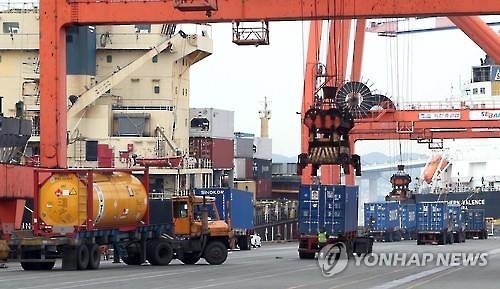Korea’s domestic demand seems to support the entire economy despite faltering exports stemming from weakening global demand, a government report showed Tuesday.
“Domestic demand, particularly private consumption, has been getting better recently, although exports have been on the decline,” the finance ministry said in its monthly economy assessment report.
The report is based on the latest economic indicators on such key factors as output, exports, consumption and corporate investment that could provide clues as to how the economy has been faring in recent months.
Recent data showed that the country’s retail sales gained 4.2 percent in March from a month earlier on a sharp rise in durable goods like passenger cars.
The Korean government revived an excise tax cut program on cars earlier this year in order to boost private consumption and the entire economy in the end.
Despite the somewhat favorable assessment on the domestic side, external risks, such as the global economic slowdown; uncertainties over the U.S. rate policy; and instability in emerging markets still weigh on the Korean economy that relies a lot on exports.
Outbound shipments sank 11.2 percent in April due to a sharp drop in shipments of autos, flat displays and petroleum products, accelerating the declining pace from a 8.1 percent drop in March.
Industrial output, which is closely linked to exports, fell 1.5 percent in March due to the sluggish semiconductor sector, while the manufacturing capacity utilization rate stayed low at 73.2 percent.
“Domestic demand has been in an upside mode supported by fiscal policies and improved business sentiment, but the private sector’s momentum is still weak, along with external pressure like a protracted global slump,” the report said.
The ministry also vowed to keep close tabs on financial and currency markets, and economic trends at home and abroad to be ready for any necessary action. (Yonhap)


